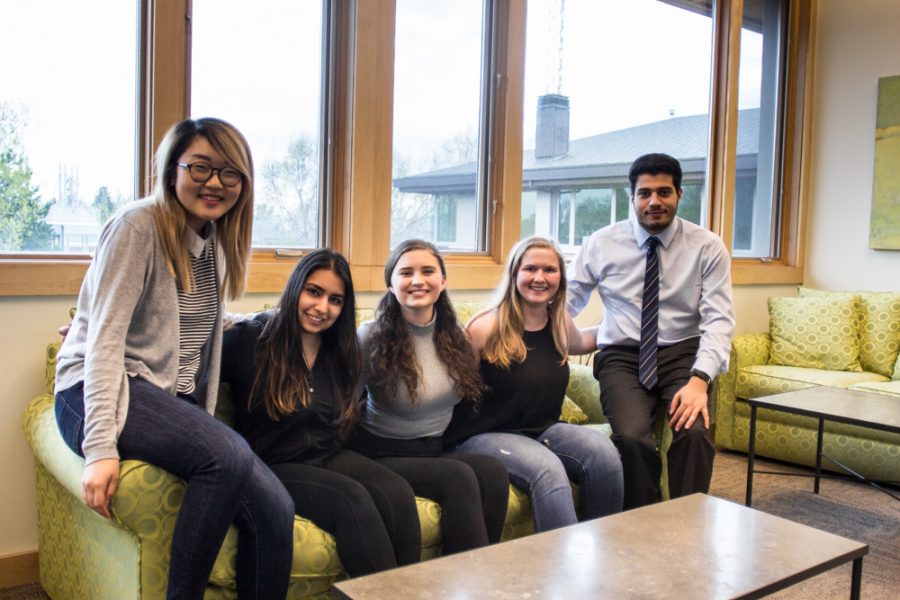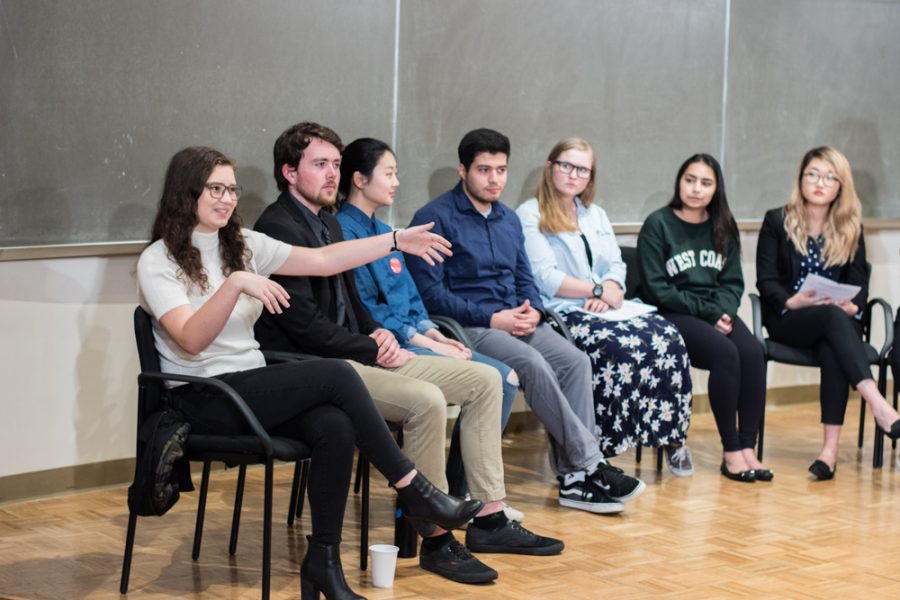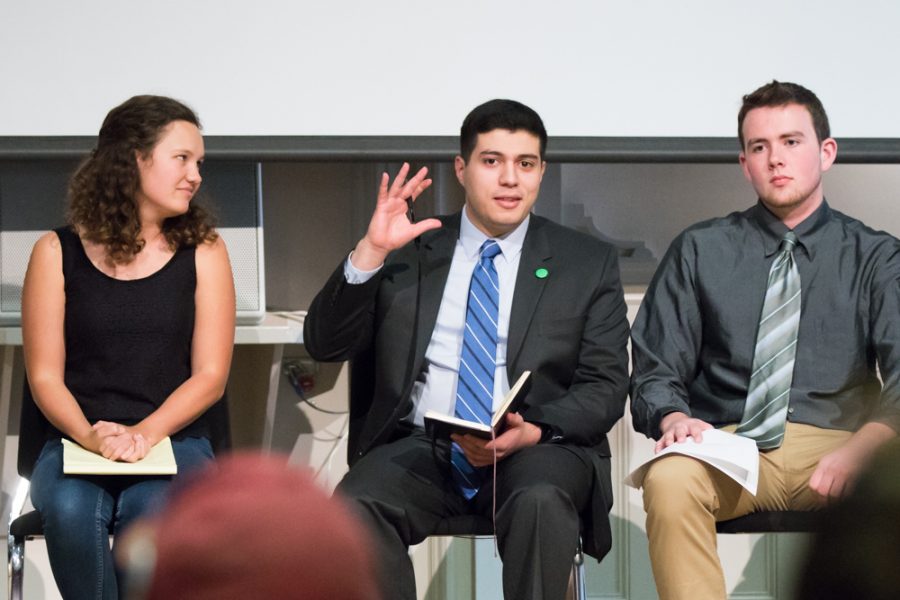Up until now, efforts to make Whitman’s campus green have largely been fueled by student enthusiasm, with groups like Green Leaders and Campus Climate Challenge leading the way. But according to a recent resolution from ASWC asking the college to create a full-time sustainability coordinator position, it may be time for the college to pick up some of the slack.
On Sunday, Oct. 21, ASWC approved a resolution asking the college to create a full-time staff position for sustainability coordinator. Along with listing reasons why this position is so important, the resolution lists names of faculty to whom the resolution will be distributed in an attempt to gain faculty support.
The resolution will soon be passed along to the budget advisory committee.
“ASWC’s involvement in this whole thing is that we’ve written a resolution that is advocating for a new sustainability coordinator––a full-time position,” said senior Sally Boggan, ASWC’s communications director.
In the past, two interns have worked together to keep the college sustainable. Senior Natalie Jamerson is one of them, currently employed by the school as one of its student sustainability coordinators.
“We have a lot of small tasks that are starting to chip away at bigger sustainability goals, for instance running green orientation, or the internship program, or the sustainability involving the Sustainability Revolving Loan Fund. So there are a lot of goals that sustainability coordinators work on,” said Jamerson.
Two years ago, the student sustainability coordinator position was expanded to include two students instead of one. The coordinators work approximately ten hours total a week and have a budget of $5000.
“The two interns came to Senate two weeks ago and they were also advocating for [the full-time position] because they don’t have a lot of institutional knowledge and historical context for the position and they don’t get very much training because there is no faculty position. There are no long-term projects because its not a long-term position,” said Boggan.
Due to the fact that there is no one person keeping track of information from year to year, record keeping becomes really difficult, said Jamerson. Ongoing efforts of recycling and sustainability are difficult to compare year to year to determine how effectively the college is “going green.”
To encourage this process, the college is attempting to have their sustainability efforts more accurately reflect the students’ interests. In the past few years, there has been a lot of student input regarding sustainability.
“At the moment, there is no centralized information, and there is a lot of student input. We already have a compost facility behind Jewett [Hall] and a bike share––[both] student initiatives. Our environmental studies department is one of the fastest growing departments on campus and we want that energy to continue in the long term,” said senior Marcial DÃaz MejÃa, ASWC vice president.
According to Jamerson, however, trying to manage this fast-growing department as an intern can be quite difficult.
“Because we are full-time students, we think that this position would be really beneficial to the school because having a full-time––or even part-time––position would help the sustainability of the position so that they could continue record-keeping,” said Jamerson.
Some of Whitman’s peer schools have already made efforts to concentrate sustainability in the hands of staff as well as of students. Middlebury College in Vermont already has a Dean of Sustainability, and has made the goal to be a carbon-neutral college by 2016.
“For ASWC, it is a priority to see a match to the student interest in environmental sustainability [with faculty and full-time staff],” said DÃaz MejÃa.









